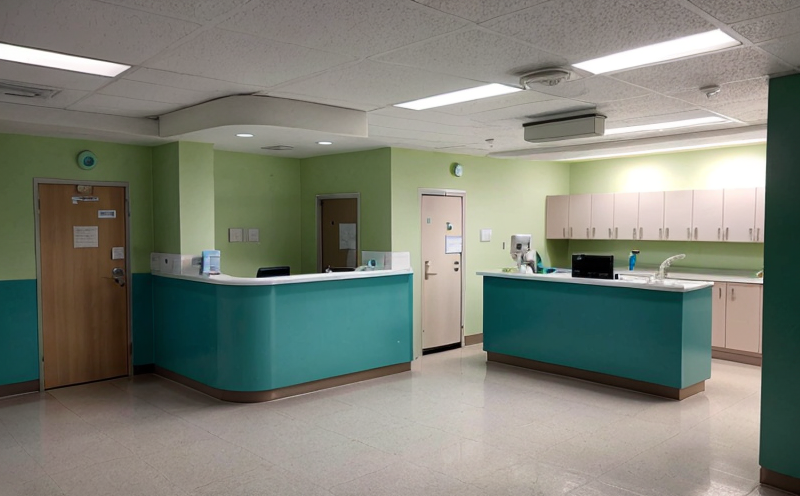NHS HTM Guidelines Environmental Microbiology Testing in Hospitals (UK)
The National Health Service (NHS) HTM 01-08 guidelines provide specific recommendations on environmental hygiene practices, including microbiological testing, for hospitals and healthcare facilities in the UK. This service ensures compliance with these regulations to maintain a safe and hygienic environment for patients, staff, and visitors.
HTM 01-08 is aimed at minimizing risks associated with infection control by ensuring that environmental surfaces are regularly monitored and treated as necessary. The guidelines emphasize the importance of preventing cross-infection through appropriate cleaning and disinfection practices. Microbiological testing plays a crucial role in this process, helping to identify potential pathogens and ensure that the healthcare environment remains safe.
Our service focuses on providing comprehensive microbiological testing for surfaces within hospitals and other healthcare facilities according to these guidelines. We use advanced laboratory techniques and adhere strictly to UK standards such as BS ISO 14695:2019, which outlines the principles of environmental surface sampling and analysis.
The process involves collecting samples from various touchpoints throughout the hospital premises—such as door handles, bed rails, bedside tables, and other high-contact areas. Specimens are then transported to our laboratory for detailed analysis using cutting-edge instrumentation including quantitative PCR (qPCR) and culture-based methods where appropriate.
Our team of highly experienced microbiologists will interpret results against set thresholds defined by HTM 01-08, providing actionable insights that help facilities maintain optimal hygiene standards. By adhering closely to these guidelines, we assist healthcare providers in fulfilling their duty of care towards patients and staff while also meeting regulatory requirements.
Regular testing not only helps monitor current conditions but also serves as an early warning system for any emerging issues. This proactive approach ensures that corrective measures can be implemented promptly before they escalate into larger problems affecting patient safety.
In summary, our service offers a reliable means of ensuring compliance with NHS HTM 01-08 guidelines through regular environmental microbiology testing. It provides peace of mind knowing your facility meets high standards set forth by healthcare authorities while enhancing overall patient care and reducing the risk of infections spreading within hospitals.
Applied Standards
The service provided adheres to several internationally recognized standards including BS ISO 14695:2019, which specifies requirements for environmental surface sampling and analysis. These guidelines are crucial in ensuring accurate and consistent results across different facilities.
- BS EN ISO 14695:2019: This standard outlines the principles of environmental surface sampling and analysis.
We also follow additional UK-specific recommendations such as those provided by the NHS itself, particularly through HTM 01-08. These documents provide specific guidance on appropriate cleaning protocols and monitoring frequencies for various types of healthcare environments.
By aligning our practices with these widely accepted standards, we ensure that all samples collected are processed in a manner consistent with international best practices, thereby increasing confidence in the validity of test results.
Why Choose This Test
- Promotes Patient Safety: Regular microbiological testing helps identify potential sources of infection early on, allowing for timely intervention and prevention strategies.
- Ensures Compliance: By following NHS HTM 01-08 guidelines, healthcare facilities can demonstrate their commitment to meeting regulatory requirements and maintaining high standards of hygiene.
- Potential Cost Savings: Early detection of issues through regular testing allows for more efficient use of resources by addressing problems before they become significant challenges requiring costly repairs or replacements.
Our service is designed specifically to meet the needs of hospitals and other healthcare providers, offering tailored solutions that address unique facility requirements. With our expertise in microbiology combined with state-of-the-art laboratory facilities, we provide accurate, reliable data that supports informed decision-making processes within your organization.





